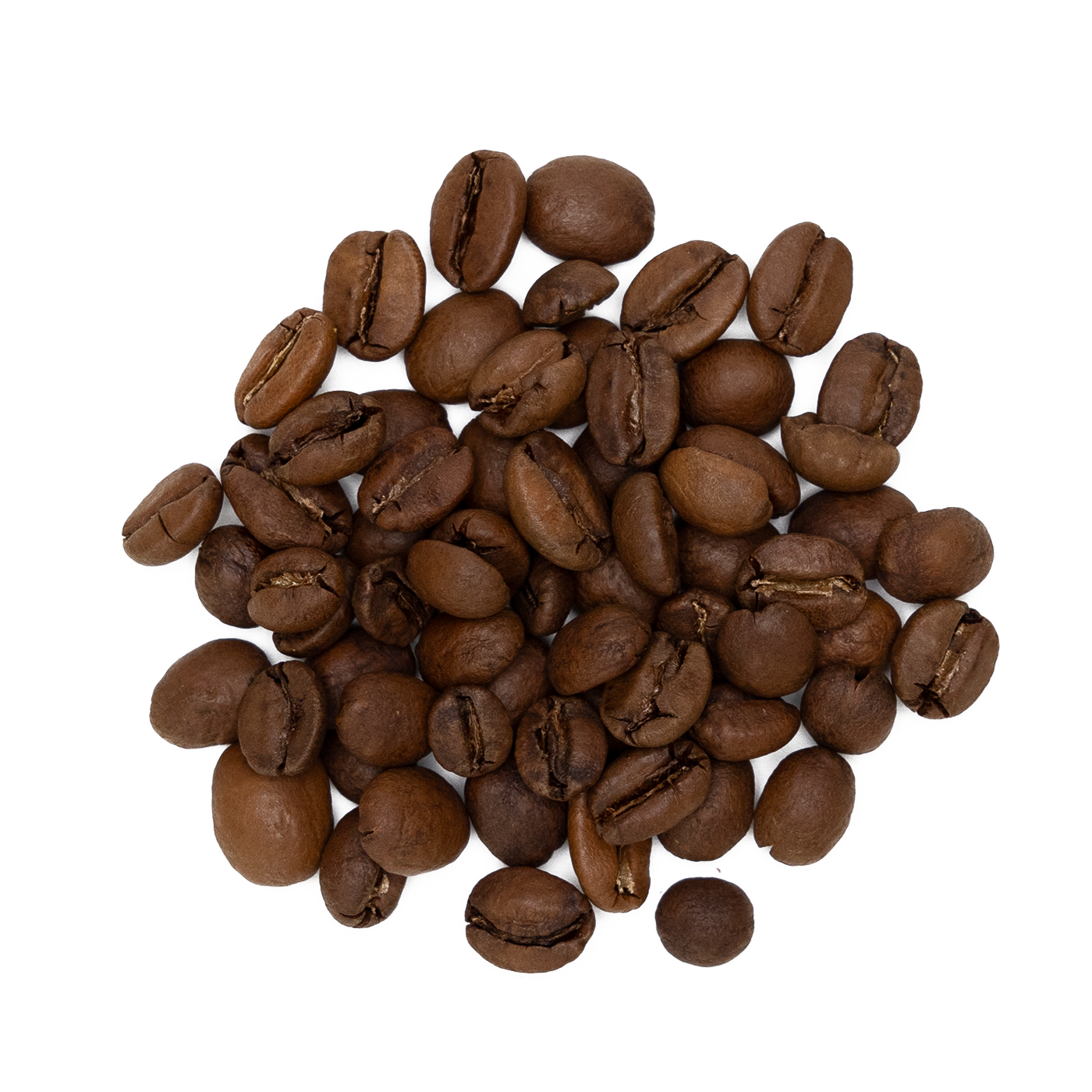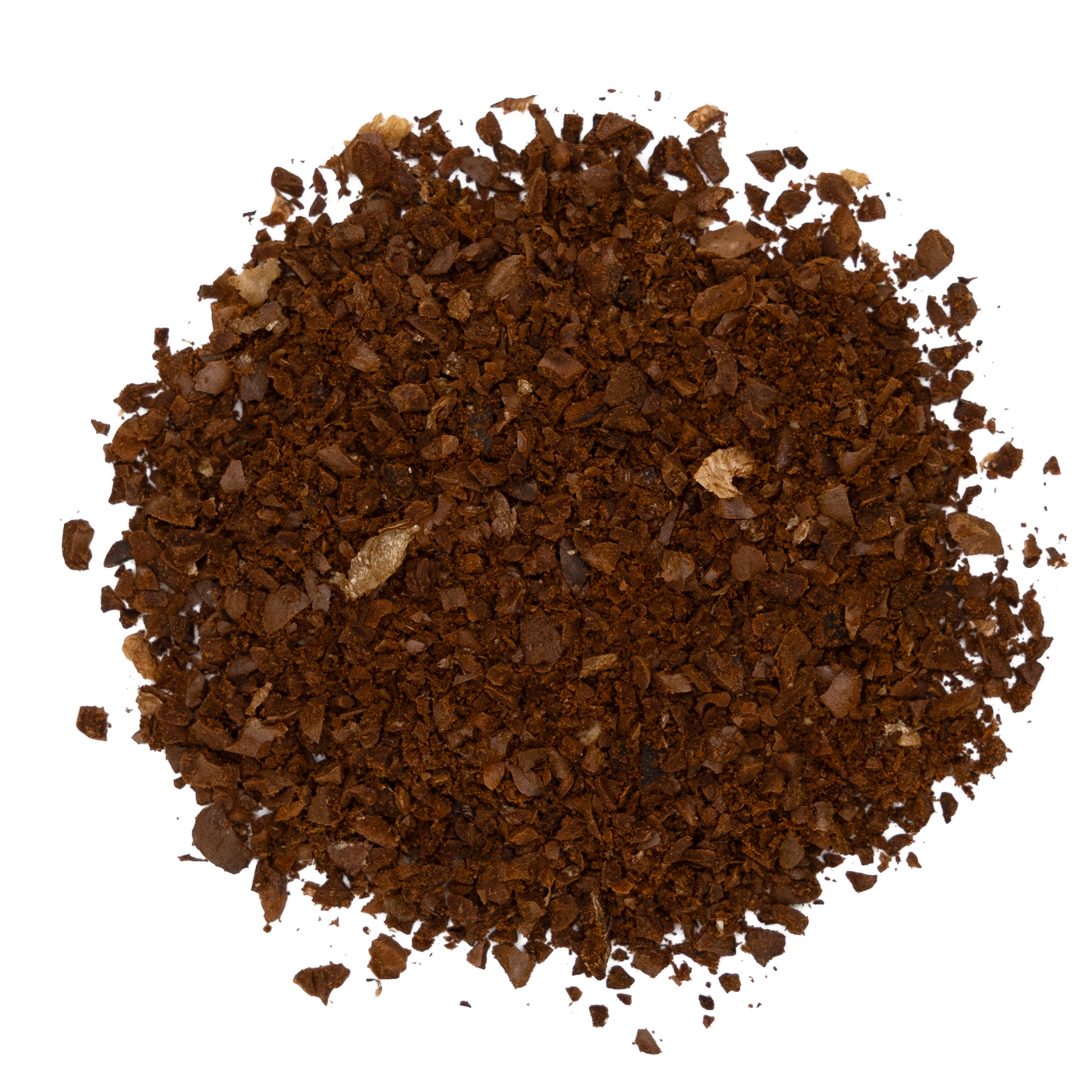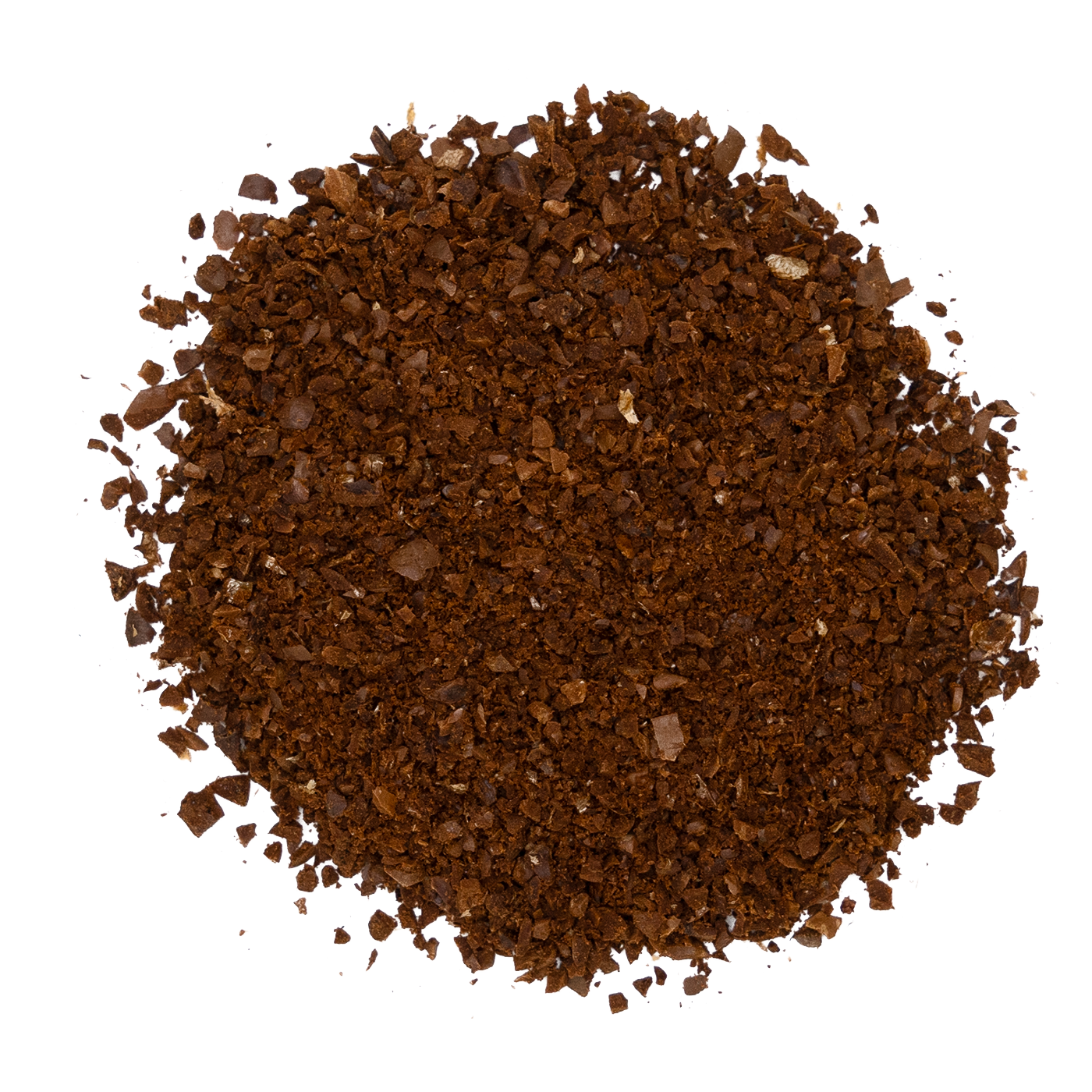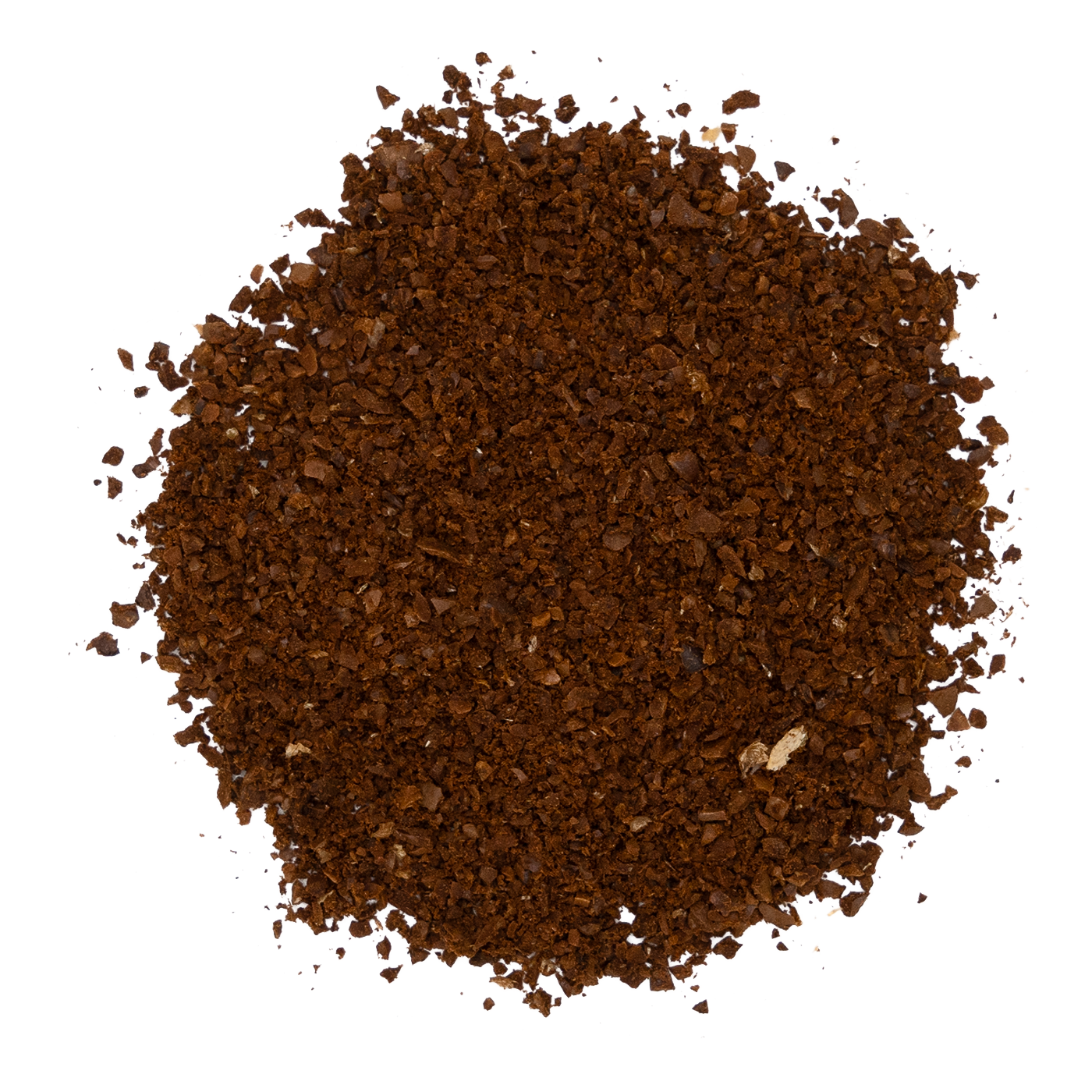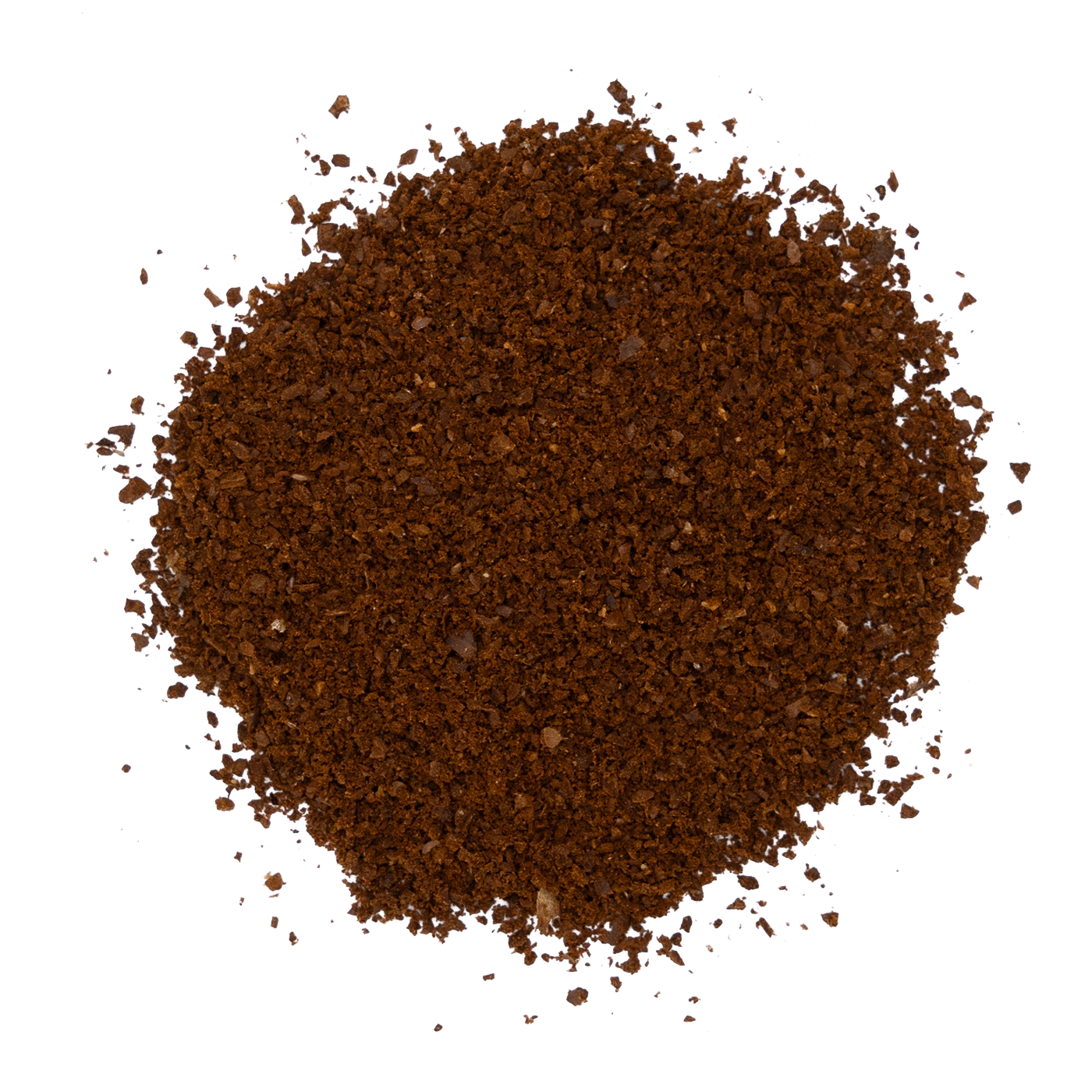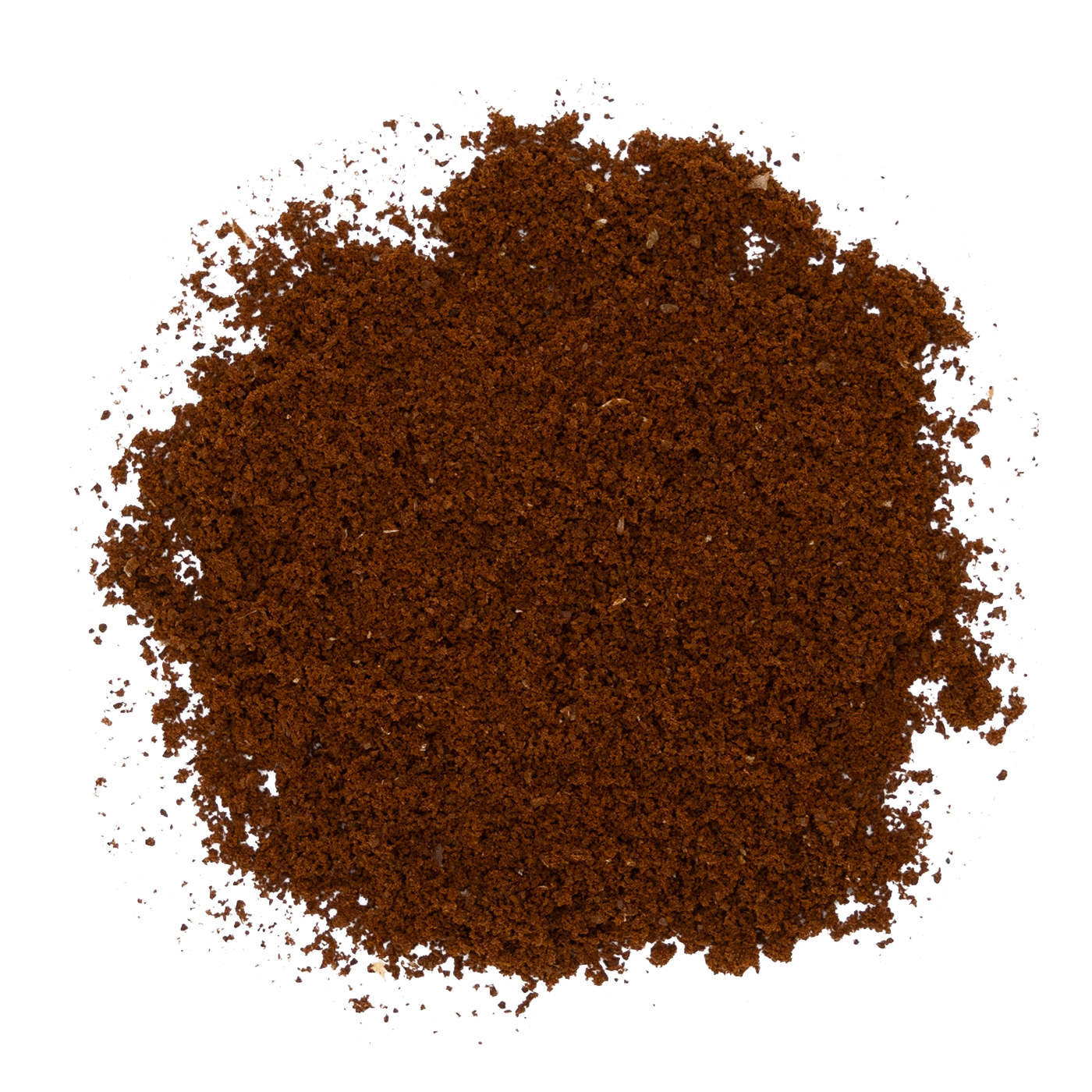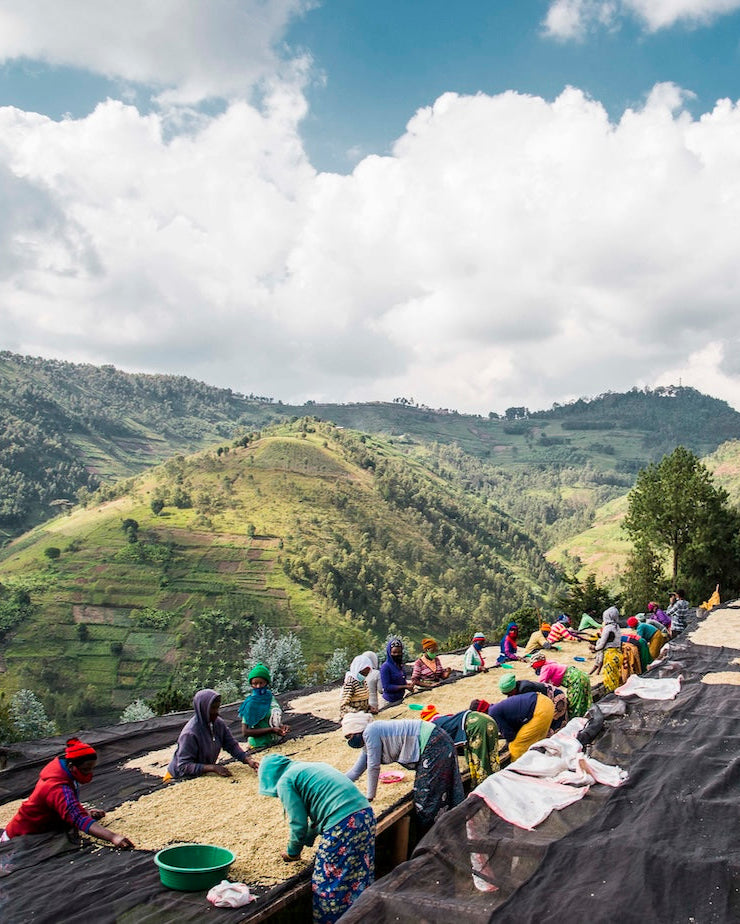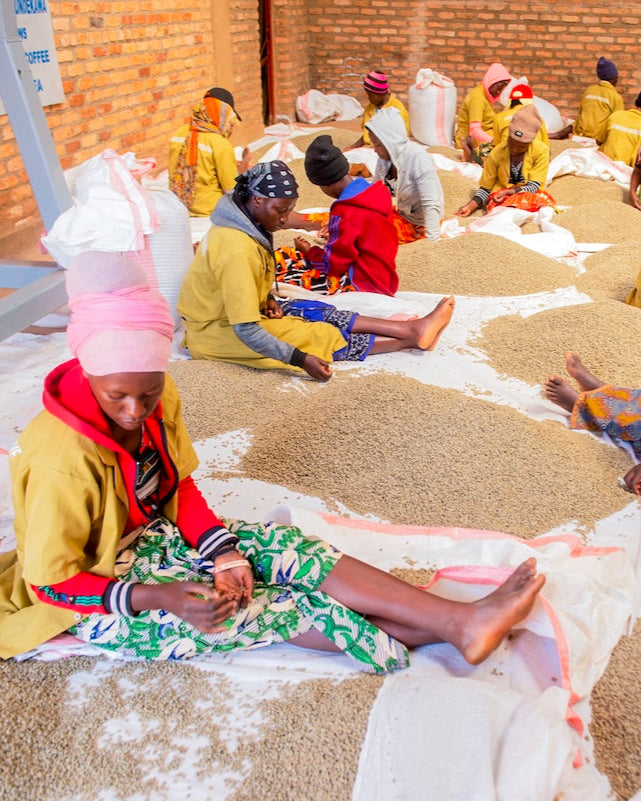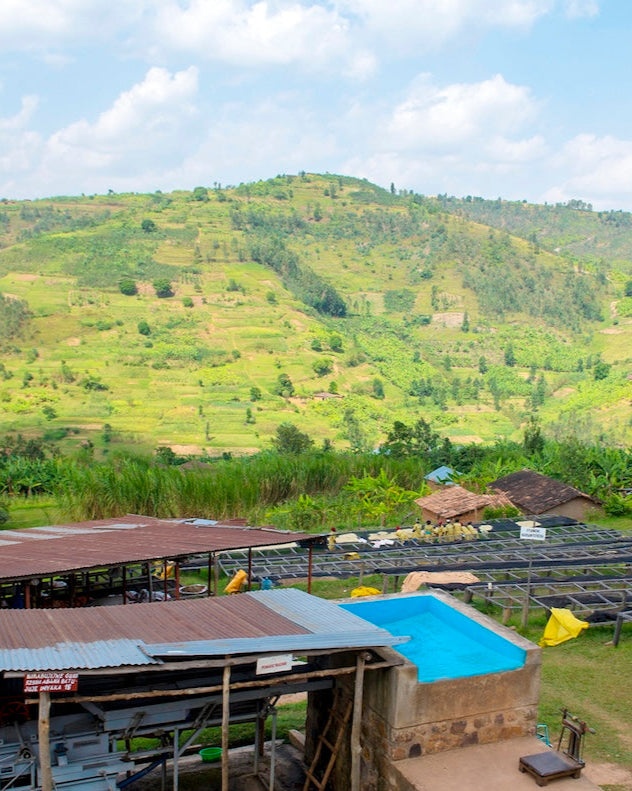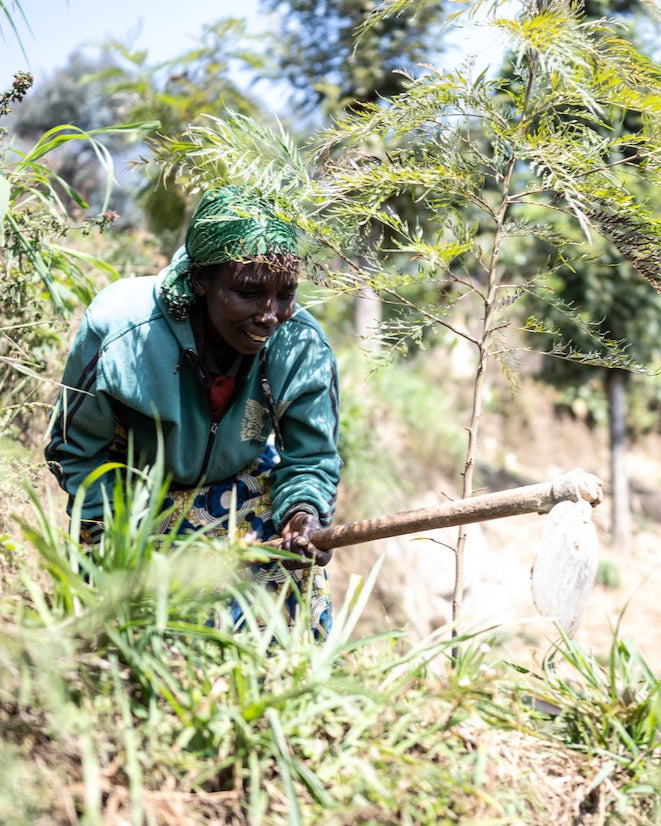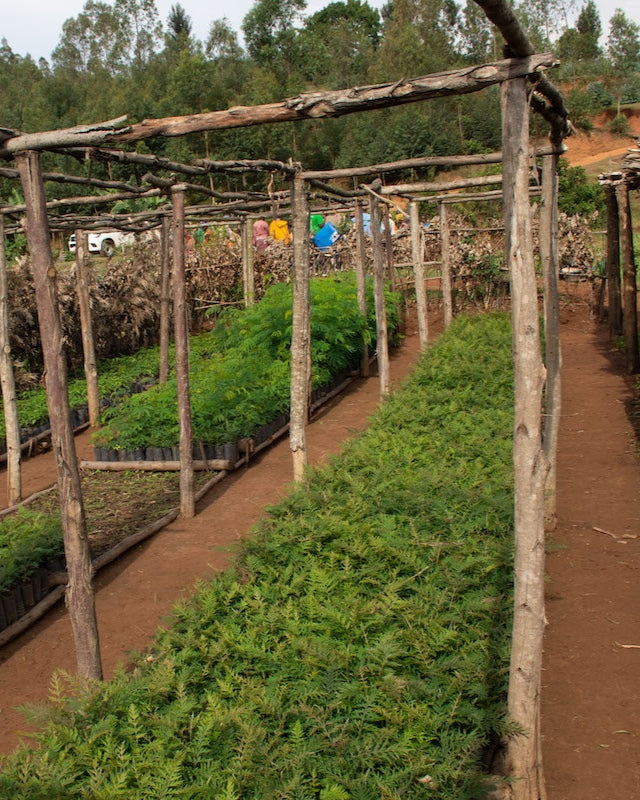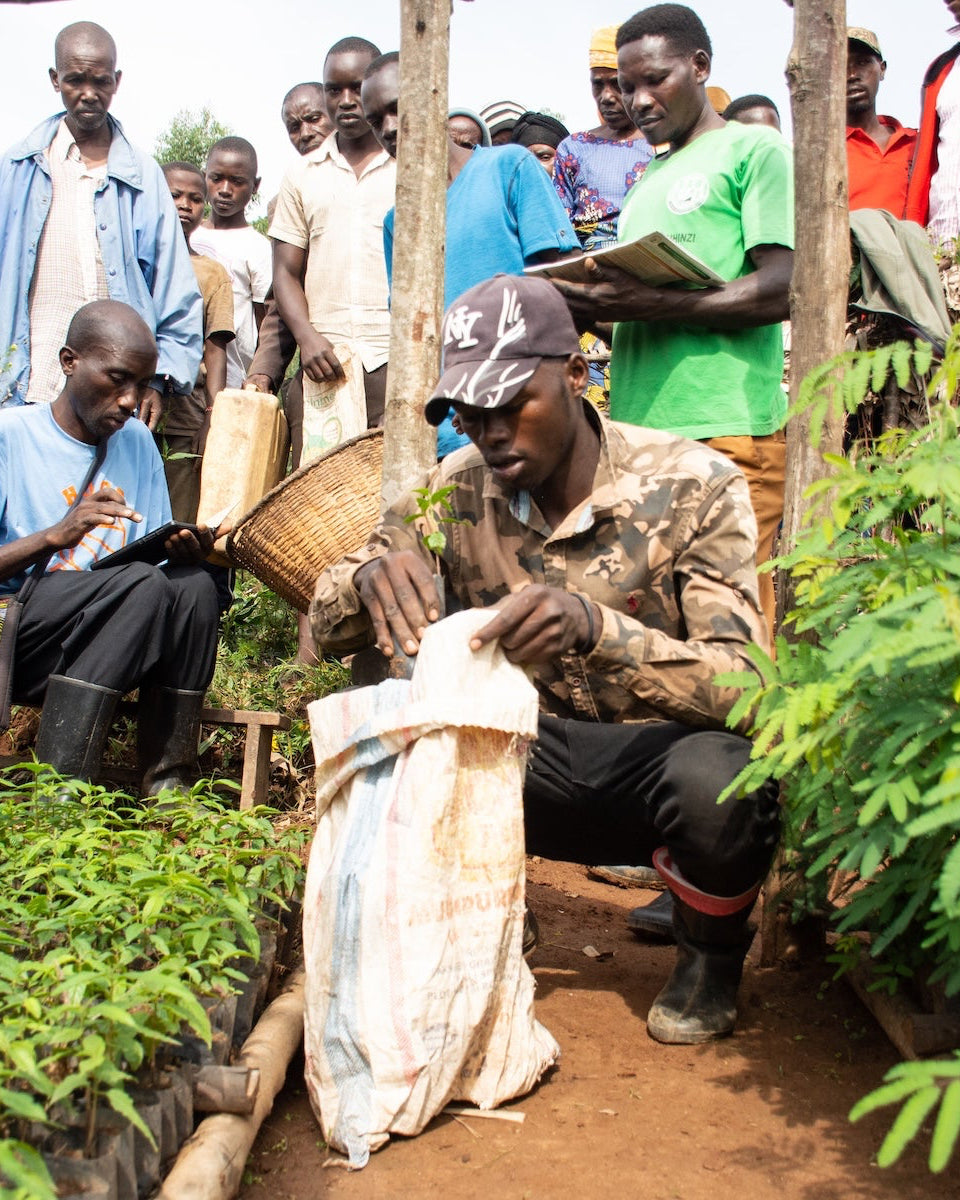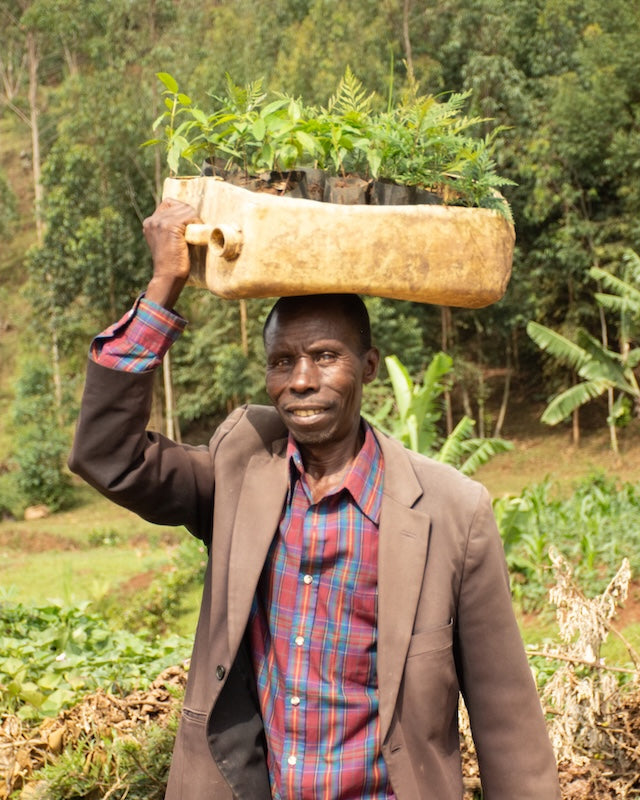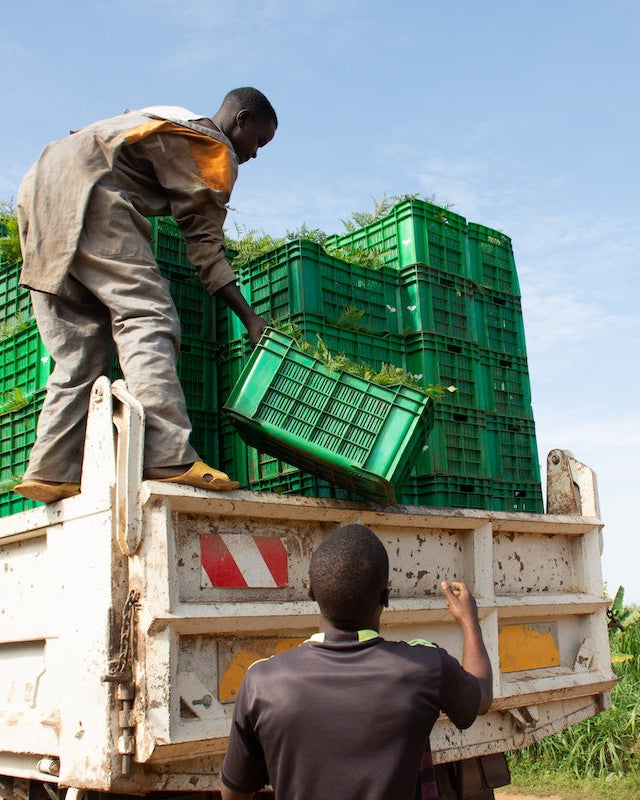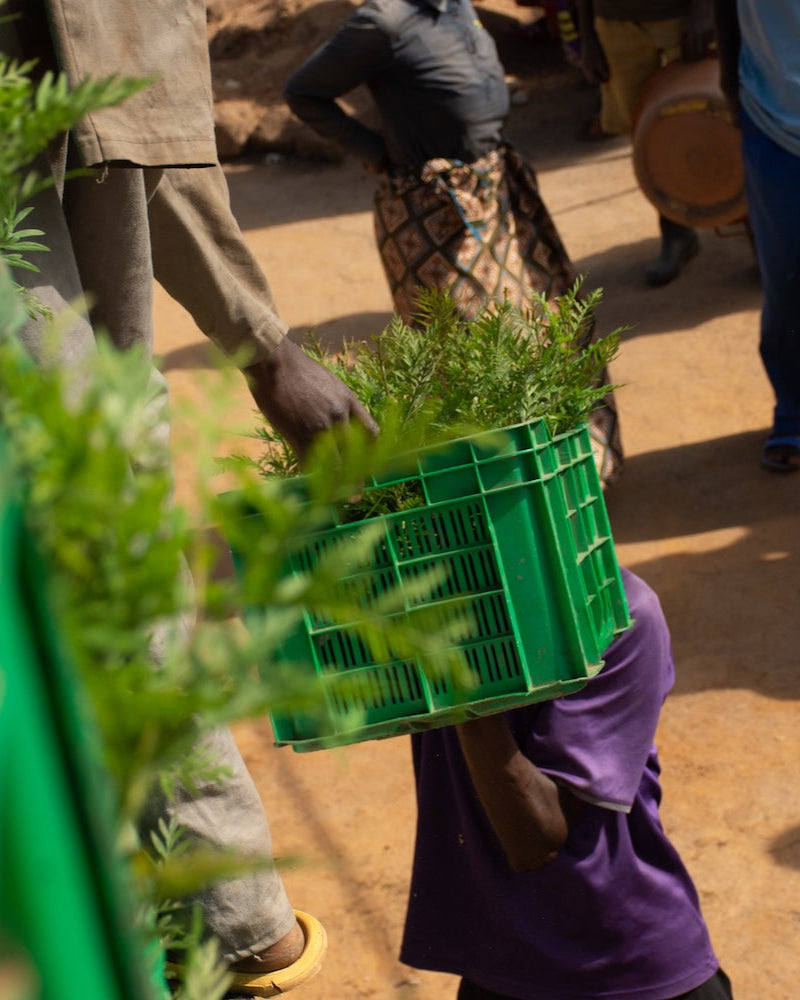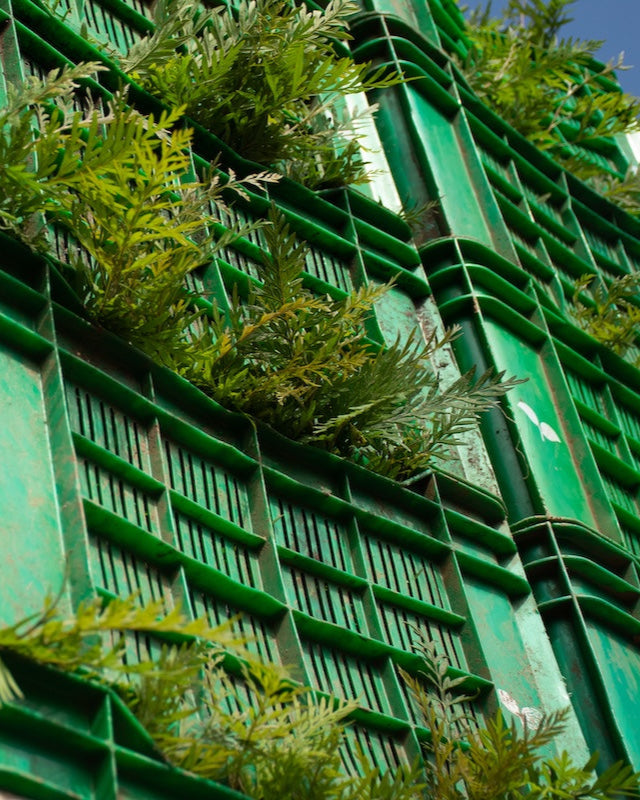A Beautiful Connection
When smallholder farmers have access to markets, life resources and sustainable growing practices, the coffee community thrives
Dukunde Kawa is a coffee cooperative that’s doing a lot more than cranking out delicious, high-quality coffee. Serving smallholder farmers who grow coffee in the hilly, volcanic soil of Rwanda, the co-op has become a life source in the community, improving farmer independence, empowering women, and training the next generation of coffee farmers in sustainable growing practices.
Dukunde Kawa is a stand-out in the coffee industry for several reasons. We’ll start with the coffee. Collectively, the co-op operates four coffee washing stations, a dry mill, a coffee school, and a high-tech coffee roastery. After being picked at 2,000-2,200 meters above sea level, coffee cherries undergo rigorous processing methods (think hand-sorted, amongst other things). The quality is evident in the cup and in the cooperative’s certifications. Just one example — Dukunde Kawa was the first co-op to become Fairtrade certified in Rwanda. (They’re also certified organic and a part of the certified Rainforest Alliance.)
“While it’s not uncommon to find cooperatives in Rwanda, it’s uncommon to find a cooperative like Dukunde Kawa,” says Dave Betts of One Acre Fund, a social enterprise that works with Dukunde Kawa farmers to improve growing practices. “They have worked tirelessly on behalf of their more than 1,000 farmer-members and produce excellent coffees whose juicy body and fruitiness are distinctive to Gakenke in Rwanda’s Northern Province.”
Dukunde Kawa is also unique in its pursuit of education, community and gender equality. The women who participate in Dukunde Kawa have created their own chapter, making handcraft products in the farming off-season for secondary income. Youth can learn sustainable coffee practices at Dukunde Kawa’s Musasa coffee school, and the co-op has provided dairy cows to farmers who need them (the latter recently blooming into a full-fledged dairy business, producing fresh milk, yogurt, and cheese). 40% of Dukunde Kawa’s income is invested back into the community.
On the agricultural front, Dukunde Kawa works with One Acre Fund to provide farmers with training, market access and shade trees for more sustainable and productive crops. By planting shade trees amongst coffee plants, farmers are able to naturally prevent erosion, improve soil health, and regulate temperature, all of which add up to a healthier coffee crop. The process, known as agroforestry, also gives the farmer additional income via timber and firewood when they harvest the shade trees, acting as a long-term asset. Better coffee yield, a more resilient farm, and financial independence? That’s a win.
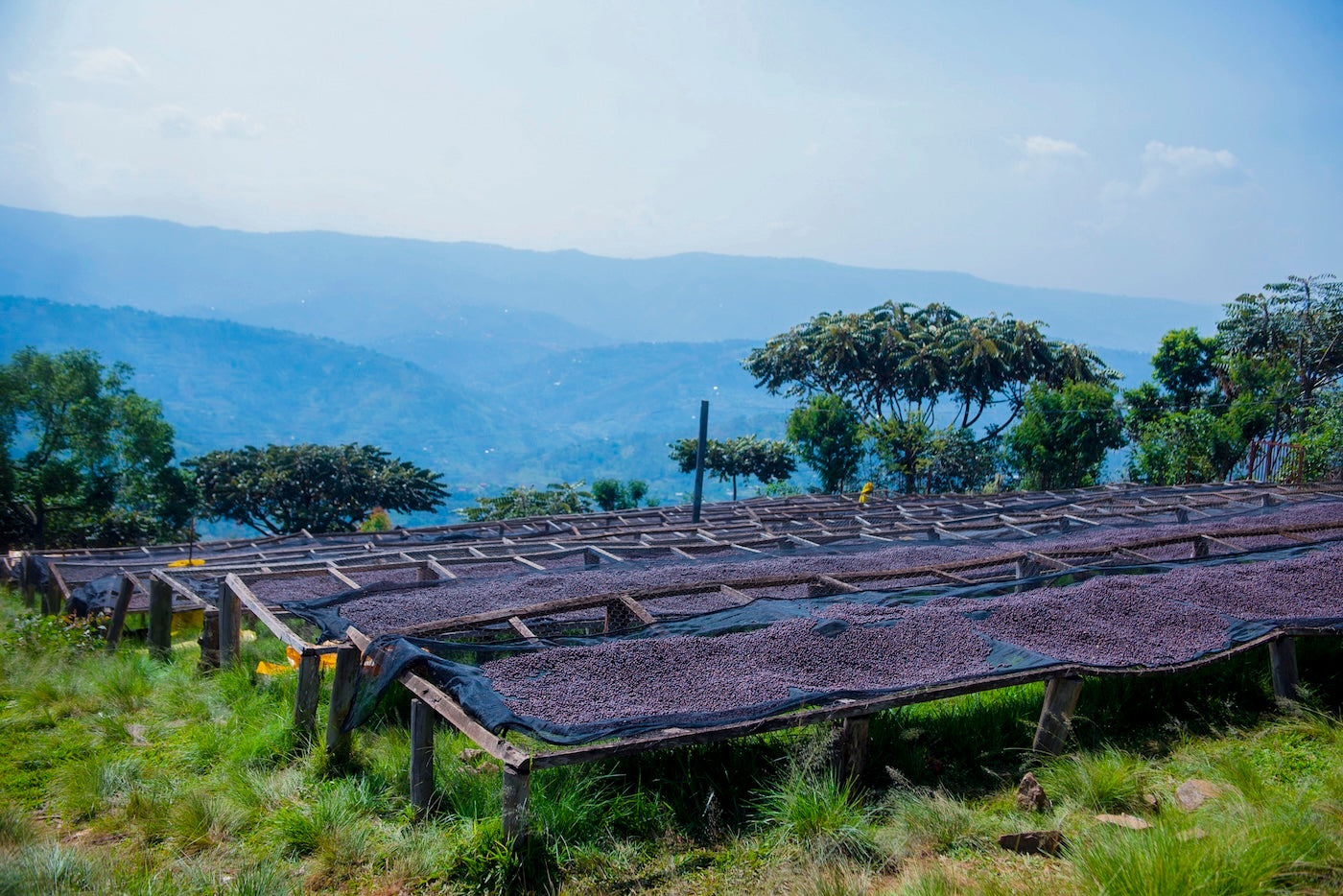
Joel Arusha, a coffee farmer and the One Acre Fund Coffee team lead in Rwanda, says the partnership with cooperatives like Dukunde Kawa and One Acre Fund strengthens the connection between economic, social, and environmental efforts in the community.
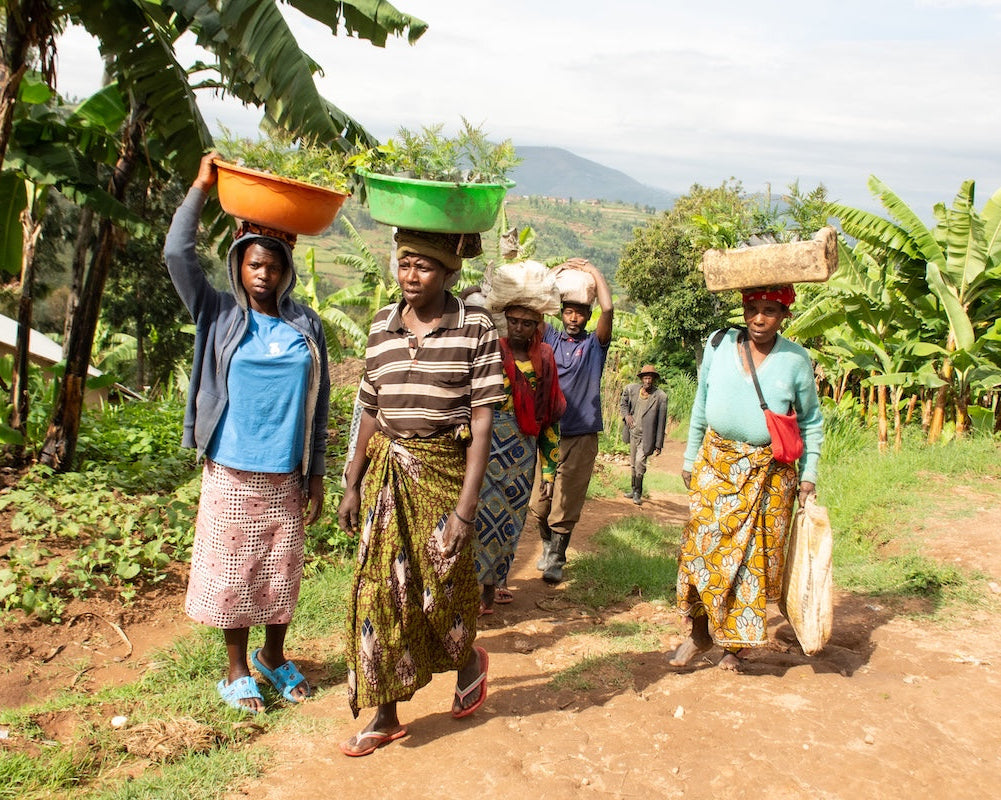
“Farmers welcome shade trees because they protect the environment, but you can also harvest the trees and sell it to the market. So there’s a push for the environmental aspect, but it has economic benefits,” Joel says. “For farmers, is it economically viable? Are they growing their coffee in a more environmentally friendly way? — which has always been the case, in my opinion — And then, how is this translating into them having a better life?”
One Acre Fund was founded in 2006 to support smallholder farmers like the members of Dukunde Kawa. By making sure farmers have access to high-quality farm inputs, financing, agricultural training, and strong coffee markets, One Acre Fund enables farmers to achieve a better long-term livelihood.
“Farmers are the stewards of our land,” says Dave Betts of One Acre Fund. “Specifically in Rwanda, where generations have been farming the same piece of land, if farmers are recognized and compensated for that work, for stewarding the environment in a more sustainable way—being recognized for that brings more power. Often in the coffee supply chain, that recognition and compensation has a harder time reaching smallholder farmers. In the programs that Joel is running, having access to ag services, better markets, and being recognized in this work, that is the way I understand impact being felt.”
To date, One Acre Fund has provided over 700,000 shade trees to coffee farmers in Rwanda. In 2024, farmers of Dukunde Kawa received more than 17,000 shade trees, which shows the co-op’s interest in creative solutions as the industry navigates a changing climate and volatile market. One Acre Fund puts farmers first in everything they do, now operating in nine countries in sub-Saharan Africa. (To learn more about One Acre Fund and support their efforts, visit oneacrefund.org.)
Try some of the incredible coffee that was processed at Dukunde Kawa in DOMA’s limited-edition Rite of Spring coffee, a medium-roast with notes of lemon, blackberry and milk chocolate. When you take that first sip, remember there’s an entire world of hard-working farmers, creative climate solutions, and a growing community behind the cup.
